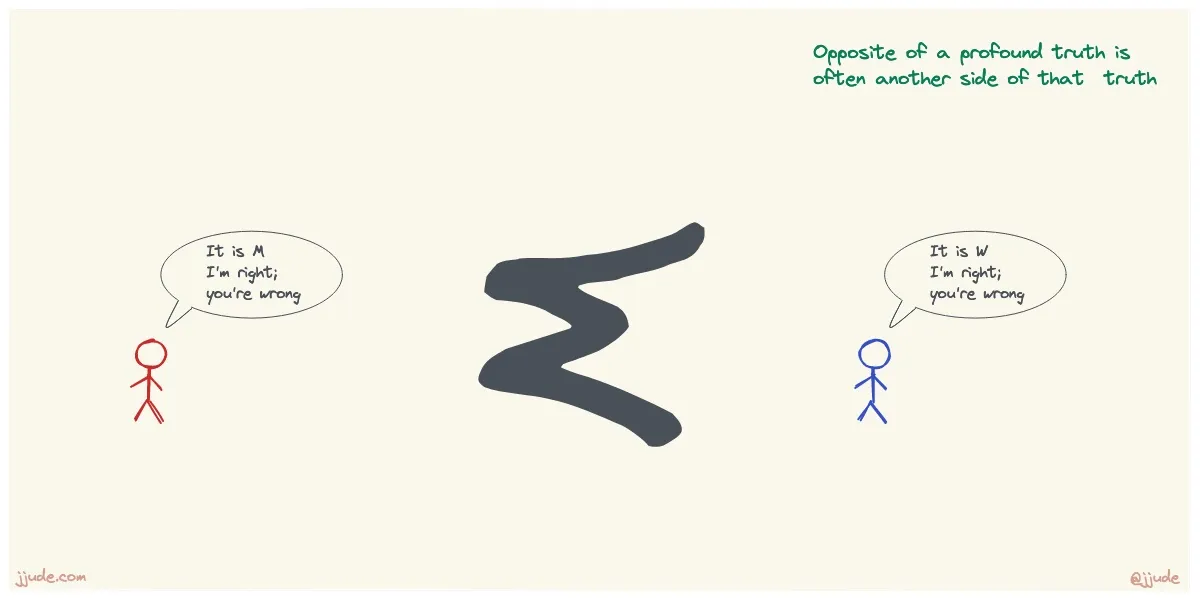Are we even looking at the same thing?
Looking at the same scene and coming to a different insight from others
We Don’t See the World as It Is, but as We Are
We rarely see the world as it truly is. More often, we see it filtered through the lens of who we are—our experiences, fears, beliefs, and biases.
You’ll notice this especially when a major event unfolds. Whether it's a political shake-up, an economic crisis, or a public health debate, the analysis that follows says as much about the observer as it does about the event.
Some blame failed leadership, while others cite systemic injustice. One group sees vindication, another sees warning signs. People pick sides and back them with facts that support their worldview—rarely stopping to ask whether they're even talking about the same issue.
This isn't just true in politics. Religion. Climate change. Public health. Even in the tech world, developers used to wage wars over mundane choices—like whether to use tabs or spaces for indentation.

Most of these polarized arguments are safe to ignore. But eventually, a topic will arise where you don’t have the luxury of staying on the sidelines. One that demands not just your opinion—but your discernment. Where the cost of getting it wrong is high.
When that moment comes, you can’t outsource the thinking. You can’t scroll your way to clarity. You’ll need to block out the noise and face the complexity yourself.
Here’s what helps:
- Acknowledge your own biases. You're not a blank slate.
- Seek practitioners, not just pundits. Favor those who've lived the problem over those who've just tweeted about it.
- Listen deeply—even when it’s uncomfortable. Understanding doesn’t mean agreeing.
- Recognize that opposing views often hold partial truths. The work lies in weighing what matters most in your context.
- Build your own hypotheses based on what you value. Then actively test them against evidence.
- Challenge others respectfully. Let your questions sharpen their claims—and yours.
- Stay humble. If the facts change, so should your mind.
In the end, don’t settle for the middle ground out of fatigue or fear. And don’t cling to one extreme out of loyalty or pride. Come to your own conclusions—thoughtfully, honestly, courageously.
That’s how you seek the truth.
Under: #coach , #insights , #wins , #visual